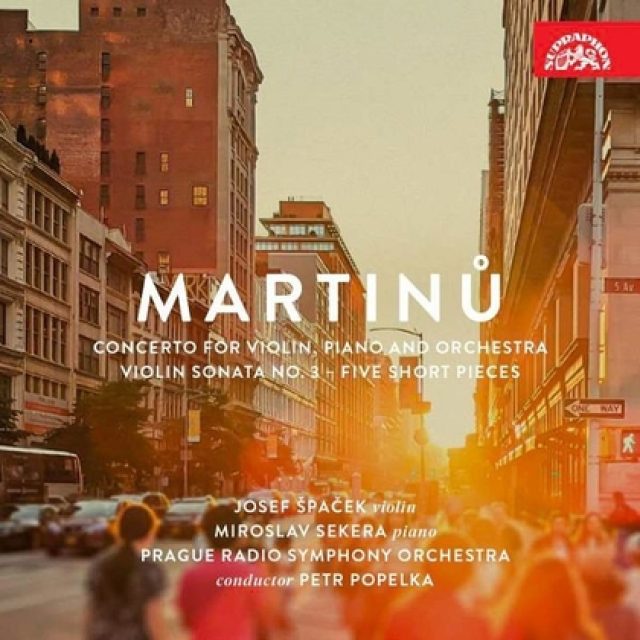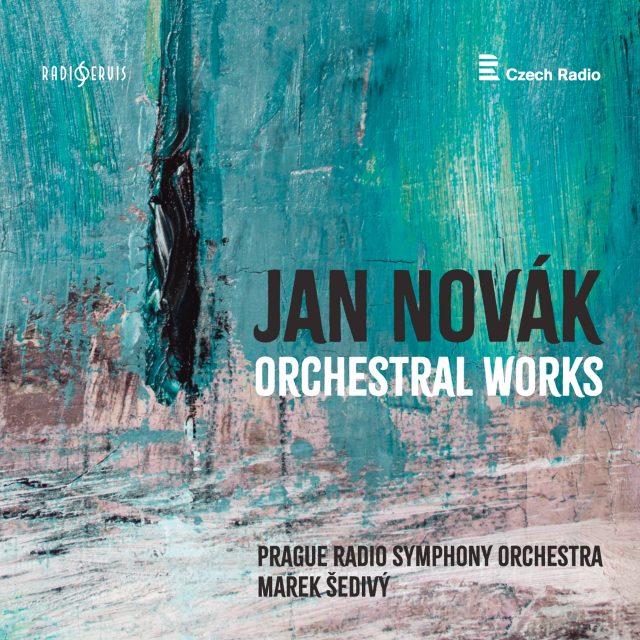In brief with Vlastimil Kobrle
(A shorter version of this text was published in the Radioraport section in the Týdeník Rozhlas weekly dated 24.3.2014)
The Dvořák Hall is the goal of every artist. Why have you decided to appear before the public with Bohuslav Martinů’s 2nd Concerto in particular? When did you learn it?
I got to know that concerto during my studies at the conservatory. My friend and classmate lent me a live recording, this was still on cassette, where the solo had been played by his uncle Pavel Prantl, who by coincidence was my predecessor in the post of concertmaster of the Prague Radio Symphony Orchestra (PRSO). The third movement made such an impression on me that I learned it then.
Last year I was asked by the PRSO’s management to appear with a solo concerto as part of its season ticket holders’ season. This year is the Year of Czech Music, while at the same time we’re remembering the 55th anniversary of the death of Bohuslav Martinů, so learning the rest of this beautiful concerto, and with my domestic orchestra, was a clear choice.
In your view, how does this music “suit” the PRSO and conductor Zollman?
The PRSO is an orchestra with a high standard of interpretation. It regularly includes works by Bohuslav Martinů in its programme, and I believe we will also enjoy his 2nd Violin Concerto together. The public always welcomes concerts conducted by Mr. Zollman enthusiastically. I’ve had that impression not only as an interpreter on stage but also as a listener in the hall.
Tell us, what actually led you to the profession of musician?
From the age of four I sang in the Ústí nad Labem children’s choir (where, by the way, I regularly came into contact with Martinů’s work). I have the most beautiful memories of that period and I regard it as really good luck that I was part of the ensemble in question. What’s more, my parents were choirmasters, so I really grew up in a musical environment. At five, I got a violin from my grandfather and it was he who guided me at the very beginning.
What other violinists and teachers have had a major influence on you?
At the conservatory in Teplice it was Mrs. Jiřina Dlouhá and at the Academy of Performing Arts in Prague it as Professor Václav Snítil – genuinely outstanding figures. I also have to recall the master classes of Nathan Milstein in Switzerland, which were led by the great Argentinian violinist Alberto Lysy. I regard cooperation with maestro Josef Suk as a stroke of great fortune. Under his leadership, I was concertmaster of the Suk Chamber Orchestra, actually immediately after graduating from the Academy’s Music Faculty. He genuinely was a musician of the highest order, an amazing virtuoso.
Today is a good opportunity to ask you what the tasks of somebody bearing the title “concertmaster” are. Can you explain to readers?
I could of course put it “in a nutshell” and say he’s the person who tunes up the orchestra before the conductor takes the stage. But that would probably offend the majority of knowledgeable readers… Of course, I’m talking about one of many duties. Communication is important, with both the members of the first violin group and the entire orchestra, and above all with the conductor. Sometimes it can be far from simple, but most of the time it’s a joy, and it is just that which ought to be conveyed to the audience. It happens when a collective of 100 musicians breathes as one, when the conductor manages to unify them and together they reveal the innermost experiences of the music.
I’m happy that I’m doing what I enjoy. I work in an excellent collective of great musicians and it’s my pleasant duty to perform an orchestral solo now and then. It’s quite different from solo performances, when you’re performing for yourself alone. At the head of an orchestra you play for everybody; it’s a different responsibility. Another integral part of the work of a concertmaster or group leader is the preparation of orchestral parts and work with a group. When a concert goes well and the audience are in raptures, when the same feeling is shared by the orchestra, it’s usually a reliable sign that something extraordinary has taken place.



